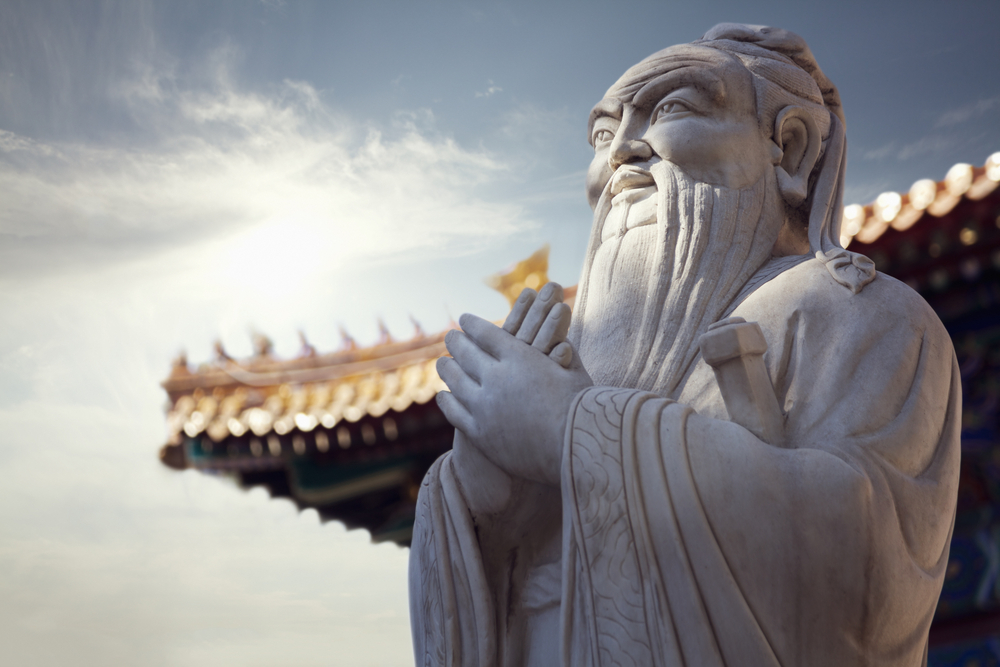
Many people know Confucius as the Chinese philosopher who spouted endless bits of wisdom during his lifetime. What many Westerners are not aware of, however, is that Confucius was responsible for creating an entire movement. Known as Confucianism, this school of thought promoted mortality in regard to governmental rule and interpersonal relationships. Though sometimes considered a religion, many scholars view it as a system of thought and behavior designed to achieve a more fulfilling existence. To gain a better understanding of this belief system, explore some of these interesting facts about Confucianism.
The Law of Heaven
Tiān is a core concept when it comes to Confucianism. Loosely referring to an ancient deity connected to the northern stars, Tiān is most often used in reference to the heavenly laws dictating the way mortals should act. These laws are said to help preserve the world, and humanity must follow them to maintain harmony between nature and heaven. Ethics were also important to these laws and encompassed justice, proper rites, integrity, knowledge, and benevolence. All members of society were expected to pay attention to these ethical standards in how they conducted themselves.
Additionally, the Law of Heaven also pointed toward certain virtues that were important for people to exemplify. These virtues included contingency, loyalty, righteousness, and respect toward elder family members. While not always placed on the same level, virtues like cleanliness, honesty, and kindness were considered vital to those living in a Confucian society. The virtue of Rén was also heavily promoted. Essentially, Rén is the feeling associated with altruistic actions. This meant acts of giving and charity were key to living harmoniously within a community.
Family & Social Harmony
Family and social harmony were also key to Confucianism. The idea was that all members of a society had a specific place in the natural order of the infrastructure. On a microcosmic level, this meant children must understand their roles in the family and adhere to the commands and wishes of their elders. On a larger scale, this harmony extended to how people showed respect to rulers and how each member of a community would interact with one another.
When each person in a society adhered to his or her natural role, it was said to help keep the peace. Of course, modern sensibilities can conflict with his way of thinking. In a Confucian society, one was not allowed to move outside of his or her station in life. This could be somewhat restrictive for women and people who were born to impoverished families. Still, at the time this school of thought was developed, adhering to the natural law helped to give every member of a group a unique purpose in the bigger picture.
The Importance of Names
Confucius was said to have many interesting perspectives when it came to the battle between order and chaos. According to scholars, the philosopher was said to believe many issues in the world stemmed from a lack of appropriate names. When a situation defied explanation, it meant the right words did not exist to properly define what was taking place. Confucius believed society would fall to pieces if citizens did not understand their exact roles. For generations, his followers were responsible for inventing new words, names, and phrases.
While the ancient Chinese philosopher Confucius is known for his many quotable musings and complex ideas, the system of thought that emerged from his teachings has had ramifications that have persisted well into the modern day. Though the way it is followed has evolved, the core concepts of harmonious living remain the foundation.

